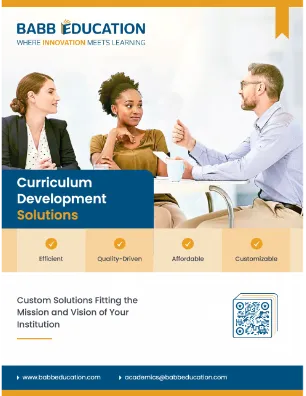Regular and substantive interaction in the online classroom is an ongoing challenge for colleges and universities, struggling to ensure that they meet the U.S. Department of Education guidelines. It refers to the frequent and meaningful engagement between instructors and students, and among students themselves, that is essential for successful learning outcomes.
In the United States, the U.S. Department of Education requires that institutions offering online courses provide regular and substantive interaction between students and instructors. This requirement is a part of the Higher Education Act, which sets standards for educational quality and accountability. This is more than a “nice to have”, it is our job as course designers and course builders to ensure that curriculum has opportunities for RSI. Keep reading to learn more about potential ramifications for colleges and universities that fail to meet this guideline
To meet this requirement, some schools have added live lectures to meet this guideline, but there are other methods that can be included in the online classroom to meet RSI that don’t take away student flexibility! The U.S. Department of Education defines regular and substantive interaction as:
-
"Regular" interaction refers to the frequency and duration of instructor-initiated contact and student-to-student engagement in the course.
-
"Substantive" interaction refers to the quality of the interaction, including the depth and complexity of the content, and the responsiveness of instructors to student inquiries.
Some examples of regular and substantive interaction in the online classroom include:
-
Instructor-initiated contact: Regular communication from the instructor through announcements, discussion boards, email, or other communication tools. It’s important for instructors to add contact to announcements, and not just an overview of future assignments.
-
Facilitation of active learning: The use of discussion boards, group projects, or other interactive activities that encourage student-to-student interaction are important. Faculty and Instructional Designers can do this by building in opportunity to ask probing questions and stay active in the discussion boards.
-
Providing feedback: Frequent and timely feedback from the instructor on assignments, exams, or other student work.
-
Office hours or one-on-one meetings: Availability of the instructor for individual meetings with students to discuss course content or address questions or concerns is often interpreted as office hours or live synchronous seminars. Unfortunately, the synchronous seminar takes away the flexibility for the student and the faculty member, although many colleges choose to build it in and we certainly can do that in your classes!
Regular and substantive interaction is essential to creating a sense of community in the online classroom, fostering engagement and motivation, and promoting successful learning outcomes.
If a college or university does not offer regular and substantive interaction in online classes, it may be in violation of federal regulations and accreditation requirements. Failure to meet this requirement may result in a loss of federal funding for the institution or a loss of accreditation.
In addition to regulatory and accreditation implications, the lack of regular and substantive interaction in online classes can have negative consequences for students. Without regular interaction, students may feel disconnected and disengaged from the course content and their peers. This is the opposite of what we want as as an instructional design team! Students may have difficulty understanding the course material, and may not receive the necessary support and feedback to succeed in the class. This often results in lack of persistence in their degree program.
Overall, it is important for schools and educational institutions to provide regular and substantive interaction in online classes in order to ensure that students receive a high-quality education and can achieve their academic goals and the institution does not suffer any negative consequences.
Learn more about our curriculum development and instructional design opportunities, and how we build RSI into our design!



